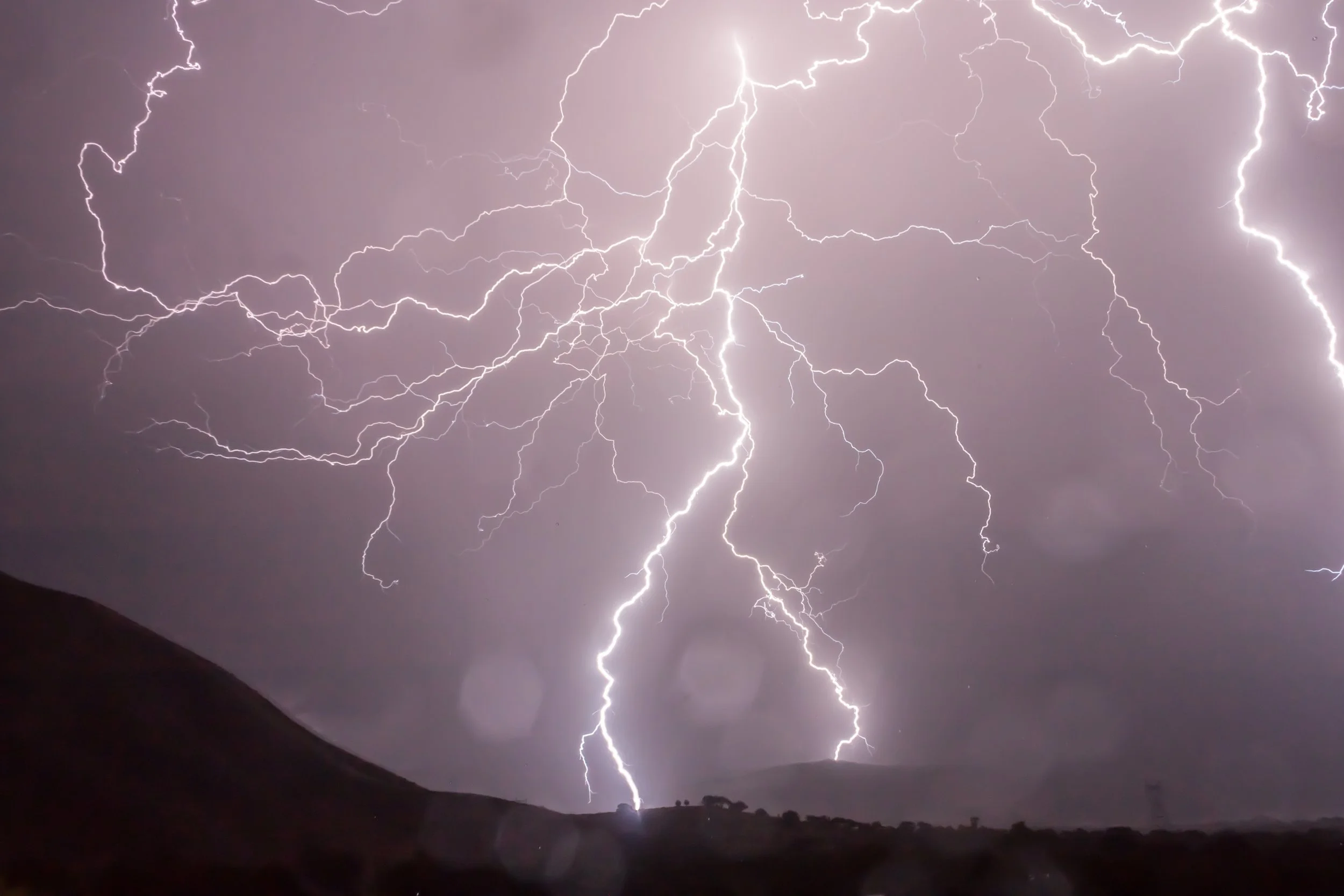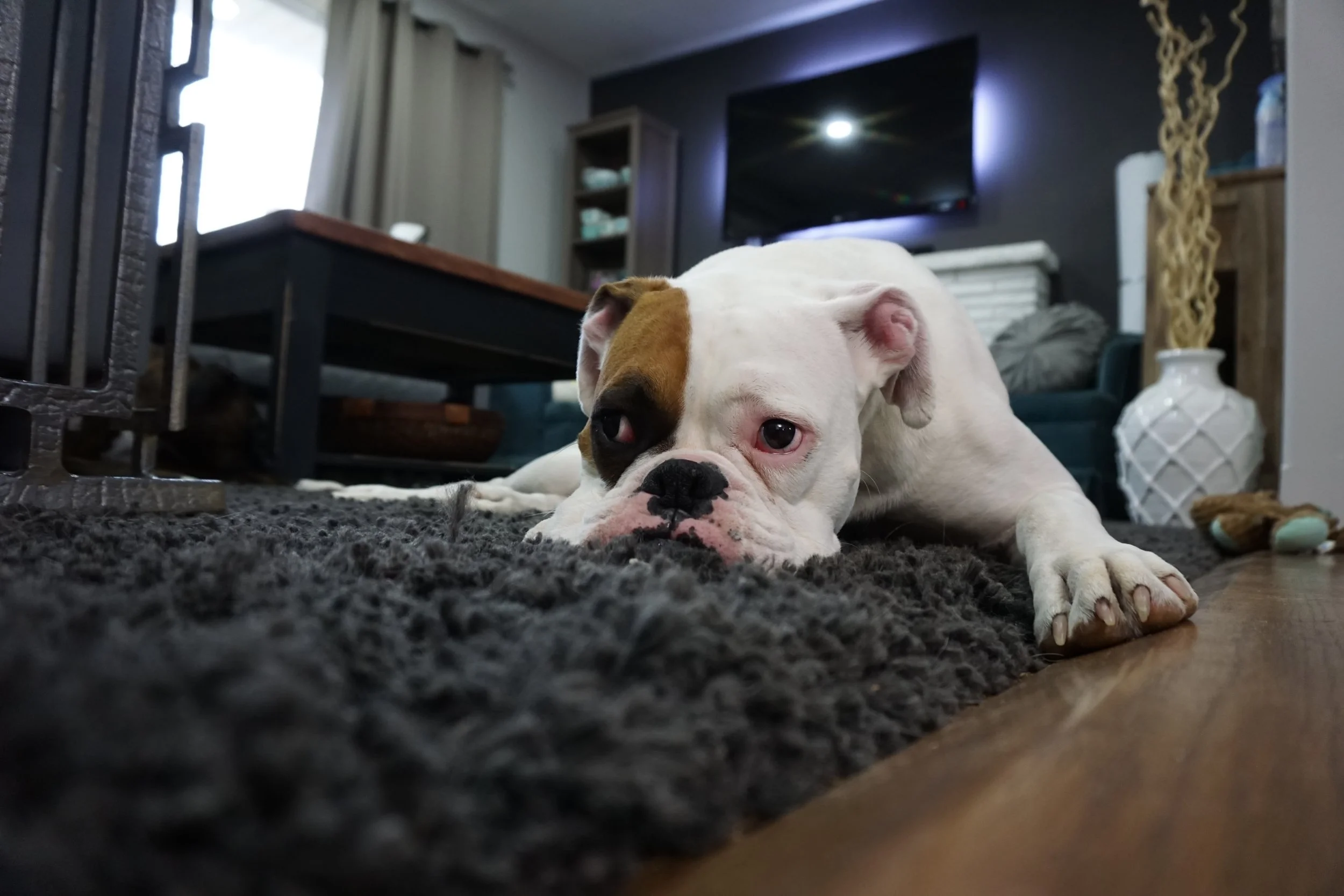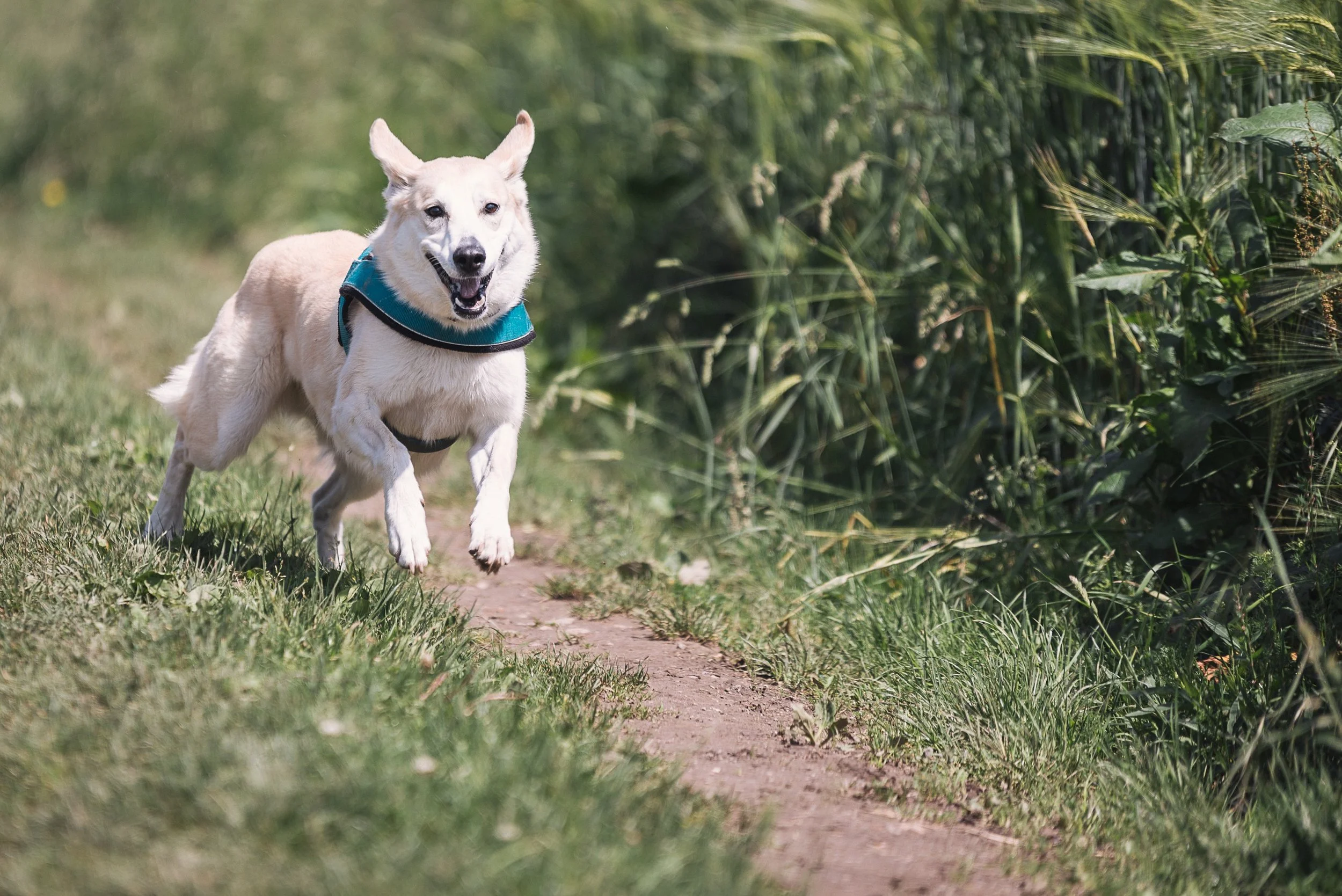How to Help Your Dog When They're Afraid of Loud Noises
/Today's the Fourth of July, and summer is thunderstorm season for much of the US, so it's as good a time as any to discuss dogs that are sensitive to loud noises. What can you do to help? Which techniques are effective and which aren't? Can they ever get over it? Let's find out.
Let's start with a myth that most people love learning is a myth. You can't reinforce fear. That isn't how operant or classical conditioning work. It's perfectly fine to comfort your dog if petting them or talking in a calming voice help calm them down. The myth is the notion that this can reinforce fearful behaviors, but fear is an emotion, not a behavior. The behaviors associated with fear are triggered by the fear, not by being reinforced by your comfort. This makes intuitive sense if you think of a child afraid of a lightning storm. Almost none of us would imagine that hugging them and telling them they're safe would make them more scared. So if your dog finds it helpful to hide in your arms and be talked down during times of stress, go for it.
Now a less popular myth. Essential oils. They have a huge following and you can find claims that they'll fix just about anything. If you look past anecdote for real hard evidence, there isn't any. There's just no reason to think that aromatherapy does anything helpful for dogs at all, and many essential oils can be toxic, so this is advice that's best to just skip. Don't confuse essential oils with Dog Appeasement Pheromone (DAP), though. They're not the same. There is some evidence that DAP may help with certain types of anxiety. The studies are somewhat incomplete and some of the evidence is a little sketchy, but overall if you want to try it go ahead.
Thundershirts are another common go-to quick-fix for noise sensitivity. There are some issues with the studies conducted available on their website (specifically that they didn't establish a very good baseline for their trials or use proper controls), but that isn't to say they don't work. While there isn't a lot of hard evidence to say they definitely work, my personal anecdotal experience is that roughly half the people who've used them see some benefit. One hazard to avoid with these is that if you're not careful the donning of the shirt can become conditioned to predict the anxiety-producing event and the anxiety can back-bleed. If you follow the instructions that come with these kinds of products you should be okay. Last big "pro" on this topic is that most stores that sell these have an excellent return policy if it doesn't work for you, so there's very little risk.
The last thing to discuss is medication. Many people are hesitant to use medication. Just as with people, there's a mental health stigma that surrounds it. My favorite analogy that cuts through this is glasses: nobody would tell me that I shouldn't go and get contacts or glasses because I can't see. If I went through life unable to see anything, people would tell me "go to the eye doctor!" as soon as they found out. If your dog (or you!) are going through life dealing with abnormally high anxiety (situational or general), a vet (or doctor) can help, and there's absolutely no shame in that. Hopefully, society can come around eventually on that one. Seriously though, if your dog suffers from noise-induced anxiety, talk to your vet. They'll check for various medical conditions that can make it worse and can prescribe medication that can really improve your dog's quality of life if necessary.
There are many factors that affect noise sensitivity including age, breed, past experiences, medical issues, and more. So the ability to treat a dog to overcome noise sensitivity varies on a case by case basis, but the most effective techniques are systematic desensitization and counter-conditioning. This is the kind of work that should be done with a professional's guidance unless you really know what you're doing. Also, if you're reading this ON July 4th, you simply don't have the time it'll take to "fix" any sensitivity your dog already has before the fireworks show tonight. You can start planning for next year, though!
So what can you do now? If your dog hasn't experienced fireworks yet (they're a young puppy for example), you can make sure their first encounter with them is awesome. This will help minimize the chances that they develop a fearful sensitivity to them later on. Every time there's a loud boom? Give them something amazing. If puppy figures out that "BOOM" outside means "meatballs and cheese fall from the sky," they're very likely to form a positive emotional connection to the noise instead of a fearful one. This applies to puppy's first thunderstorm as well.
If your dog is already fearful of loud noises, then before the fireworks start: set them up for success. Go to a dark quiet room, stay with them if you can, make sure the room is safe if you can't. Play soft music to help disguise the sounds they may be afraid of. Many dogs find chewing to be calming, so bring in a few favorite chews. Maybe strap on a Thundershirt and/or plug in a DAP diffuser, or spray some on a blanket for them. More dogs go missing on July 4th than any other day, so don't take them with you to the scary places. Then, once you're over this hurdle, call a professional to help so that next year won't be so rough on 'em.
Benjamin is the owner of Good Doggy Saratoga. You can follow him on Facebook.
If you liked this article, please like and share below. You can also subscribe to receive blog updates in your email.






